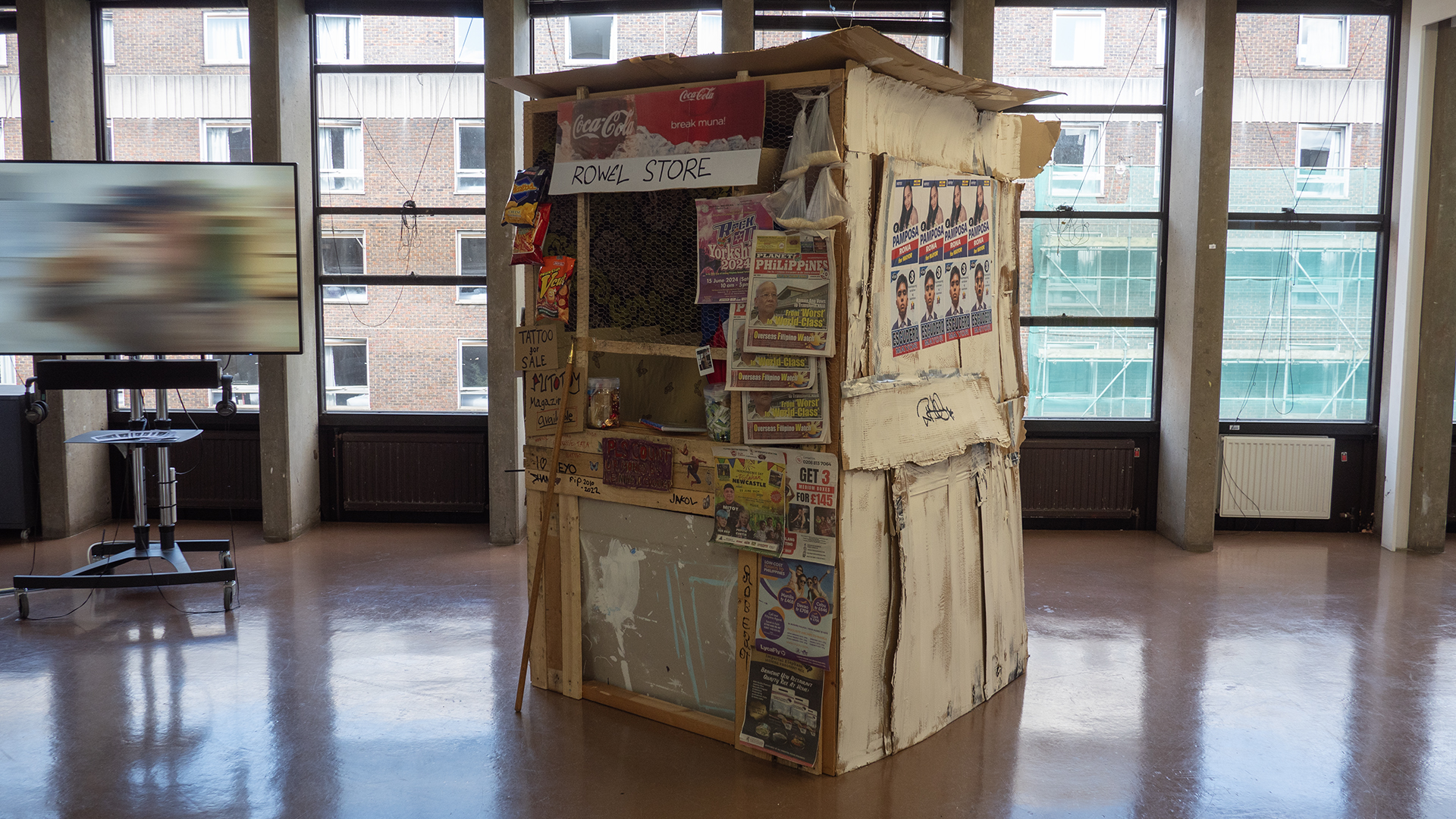Sari-Sari stores are ubiquitous across the Philippines. They are neighbourhood stores that are usually built as extensions of someone’s home. Sari-sari in English translates to ‘variety’, as the items on sale in these stores range from candy, to shampoo, to cigarettes. They are cornerstones of these neighbourhoods’ economy.

Although the function of sari-sari stores is consistent across the Philippines, the aesthetic nature of them and the goods on sale vary depending on various factors such as geographical location and most importantly who runs the shop. You can tell a lot about the shop owner through their sari-sari store. They are intimate spaces.
My practice-based research during this MA has focused on the effects of digital media in shaping cultural identity. I haven’t been to a sari-sari store since I was five years old, too long ago to have any concrete memory of what the experience was like. Rowel’s Store captures my exploration of Filipino culture via personal memory and the online mediation of YouTube, films, music and images. Pulling from personal narratives and collective representations, I have built Rowel’s Store as a way to explore and map out my positionality as someone who is constantly trying to navigate the tensions of my own identity formation.
My practice-based research during this MA has focused on the effects of digital media in shaping cultural identity. I haven’t been to a sari-sari store since I was five years old, too long ago to have any concrete memory of what the experience was like. Rowel’s Store captures my exploration of Filipino culture via personal memory and the online mediation of YouTube, films, music and images. Pulling from personal narratives and collective representations, I have built Rowel’s Store as a way to explore and map out my positionality as someone who is constantly trying to navigate the tensions of my own identity formation.